Google Analytics is a useful tool that anyone can use to track the success of their website. I sat down with Epic Recruiting’s Digital Marketing Manager, Brittany Winfrey, to learn more about Google Analytics and how it can help law enforcement agencies with their recruitment websites.
Q: What is Google Analytics?
A:
Google Analytics is a free service for websites from Google that tells you who has been on your website, what they do on your website, and where they came from. It basically just gives you any information you need to know about the journey your customers are taking on your website.
Q: What are the advantages of using Google Analytics?
A:
Google Analytics helps you know who your audience is, and if you’re not reaching your target audience, you can see who is missing from the people that are visiting your website.
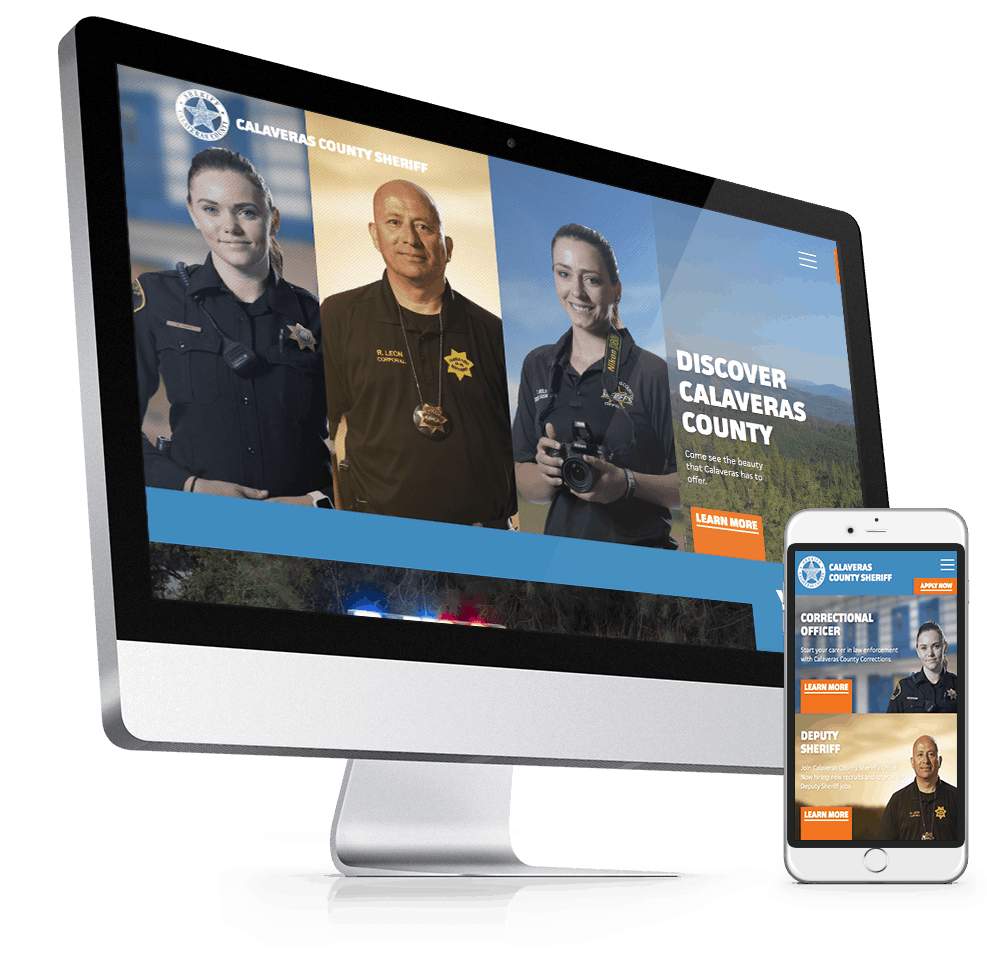
Q: What data shares the most about a website's success?
A:
The conversions. Conversions are set up by tagging and tracking the actions that people are taking on the website. You want viewers but you don’t just want people to see your website, you want them to interact with your website. These actions are called events. But you want them to take specific actions – and those are conversions. In our case, we like form fills and “Apply Now” button clicks. We want actions that show viewers taking a step toward exploring career opportunities.
Q: What does funnel mean when talking about Google Analytics?
A:
The goal with ads is to drive awareness, consideration and intent so that people get to your website, consider the options (your agency vs other agencies), and then choose your agency. Once they’re on the website, you want them to remember your brand. They hopefully are still interested in what you have to offer. By continuing to push them more information, you’re hoping that they will take the action that you want (convert).
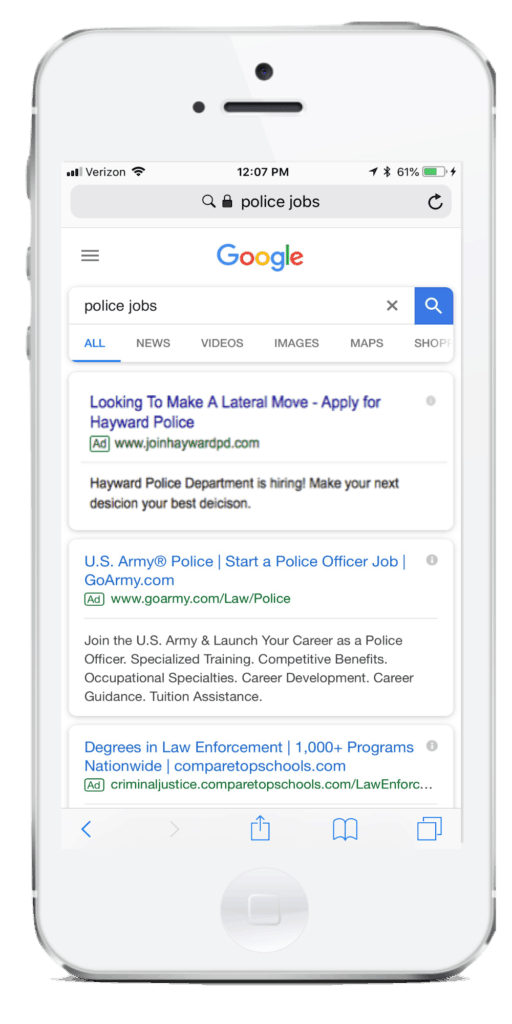
Q: What is retargeting or remarketing?
A:
Retargeting and remarketing are the same thing. Once a viewer sees the website, advertisers can keep showing you ads again and again and again. That is the remarketing/retargeting process.
Q: What is a conversion?
A:
A conversion is an action that you want your customers to take. On our pages, we use phone calls, emails, clicks on the Apply Now button, and form fills.
Q: How does Epic use the data from Google Analytics to understand client’s websites?
A:
By tracking how people are interacting with the site, we can either target them again, or we can keep sending out ads to new people. It’s really important to have retargeting in the campaign, because it can increase your conversion count by up to 150%. This means that if you keep hitting people again and again with ads, they’re more likely to convert or do the action that you want them to do on the website. I target people based on affinity, which is their personality or things that they express interest in online, and then I look at the way that those groups are interacting with the site to determine whether I’m targeting the right people in the ads based on the demographics that hit the site.
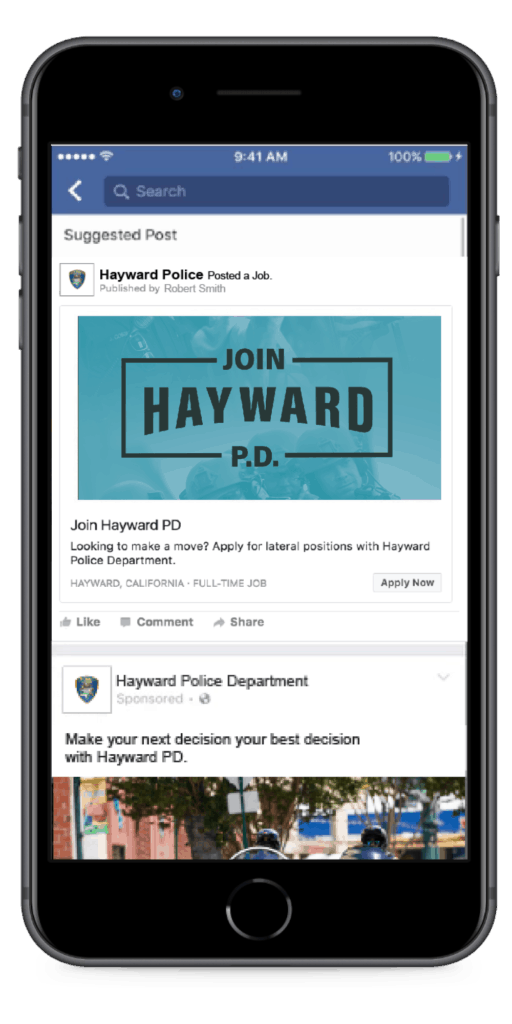
Q: Why is Google Analytics useful for law enforcement agencies?
A:
Google Analytics is important for any website, not just specifically recruitment websites.

Q: What type of information or data does Google Analytics measure?
A:
Anything you want to know. We measure button clicks, downloads, how many pages people view and videos that are viewed. Also outbound clicks (links that lead to other websites) and how far visitors scroll on the page. You can track how many times they have let the page timeout and when they reload it. You can really track any data you want to know.
Q: What is the most helpful or useful part of Google Analytics?
A:
The most helpful part of Google Analytics is that it gives you a full picture of what you’re doing well and where growth opportunities lie.
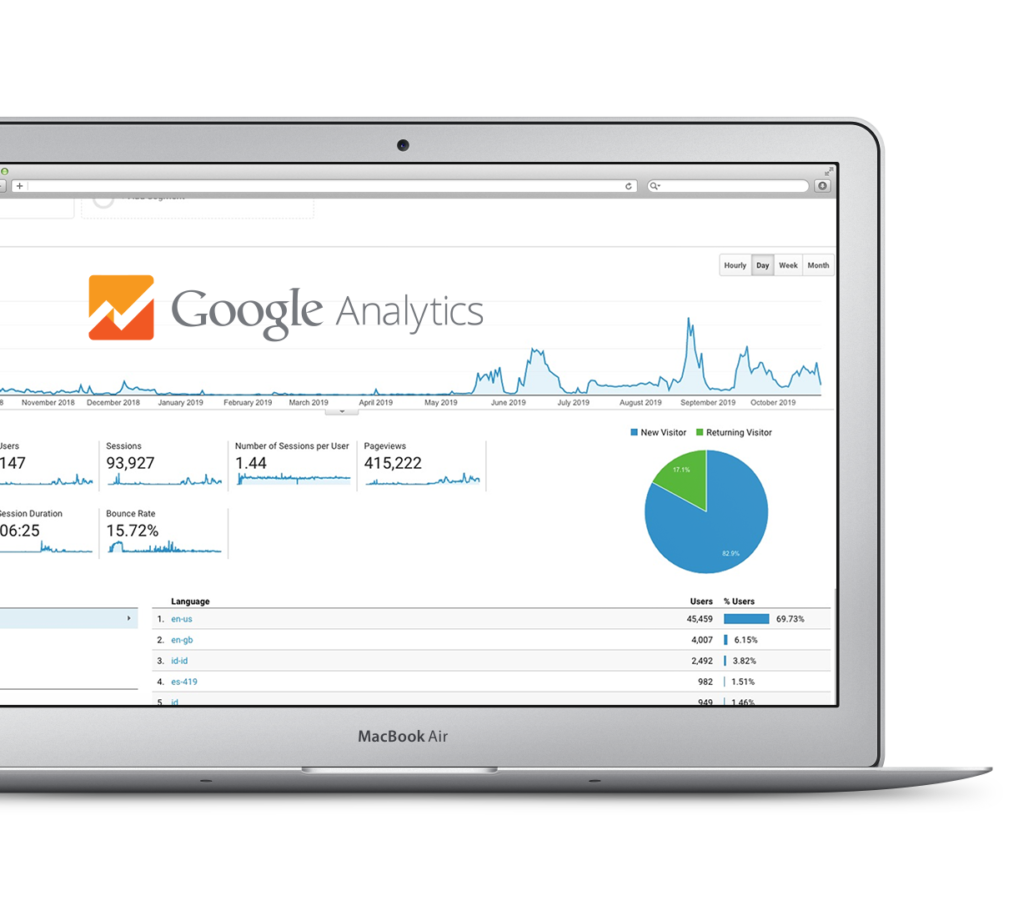
Q: What would an unsuccessful website Google Analytics show?
A:
If nothing shows up, there is no data, or the account is tracking incorrectly. If you have nothing driving people to your website, you can’t do anything with that (lack of) data.
Q: What's the difference between clicks and visits?
A:
There are a couple different definitions, depending on the platform or goal.
Within Google Ads, clicks on ads will take you to the website. So in this case, they’re the same.
When you look at clicks and visits through Google Analytics, they are different. A click on the website will register differently than a view on the website. Clicks would be the mouse click (on a button, link, social media icon, etc), whereas visits would refer to the number of times a user looks at your website.
Q: Can Google Analytics be used by anybody? Is it easy to navigate?
A:
Once you know what you’re looking at, I would consider Google Analytics relatively easy to use. The Google tags are a bit difficult to place but there are articles about how to do it. As for understanding what Google Analytics is telling you, there are tons of articles and videos that cover this information.
Q: What are ways to enhance traffic on a website?
A:
It depends on if you’re going organically or with paid ads. If you’re targeting specific people, go into your demographics on the analytics: it’s pretty easy to see if your targeting is actually hitting the correct people. For paid, you can directly edit the targeting on the ads. Organically, it’s a little bit harder because those are the people that are interested and taking action on their own. Experiment with the types of posts you’re making – carousels, stories, reels. Engage with accounts that are more aligned with the demographics you want. If none of that works and you’ve given between 6-12 months of time, you might want to re-evaluate the platforms that you’re using.

Q: How do you decide what conversion to consider?
A:
You can use as many as you want, but primary versus secondary conversions are tracked a little bit differently. A primary conversion is something that Google will spend more money on. Whereas a secondary conversion is just something that you’re tracking separately without using it as a monetary goal. If you track conversions through Google Analytics, you’re not actually assigning a monetary value in the same way that you would for Google ads.
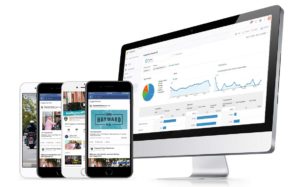
Q: Why does Epic use Google Analytics when creating websites and campaigns?
A:
It gives us a full picture of who we are already tracking, who we should be tracking, and how they’re interacting with the site.
Q: Can law enforcement use Google Analytics to help expand diversity?
A:
If you aren’t using Google Analytics and if you don’t have a separate website, you’re likely going to be continuing to do the same things that you have been doing. If you’re doing the same thing over and over and over again expecting a different outcome, it’s just not going to happen.
Q: What is the most critical information that law enforcement agencies can use from Google Analytics?
A:
Yes, geographical location is important and so is the path they take to get to your website. When you go on the traffic acquisition analytics, you can see if people came to your website from organic social, paid search, paid display ads, or a video ad, and it shows what they clicked to get to the website. So if you are looking at where they came from, overall, you can see where they came from online and geographically. People often only think about their specific area, but there may be many more target locations that they get officers from.
Q: Is there anything that you think law enforcement should know when setting up Google Analytics for their website?
A:
Less is more. People sometimes try to track every single button and every single event. The big numbers tell you mainly what you need to know, you’ll get the new users, total users, and you can calculate returning users. You can see event count, engagement rate, how long they’re spending on the website, how many pages they’re viewing. Those are really important and they shouldn’t be overlooked, even though conversions are really important.